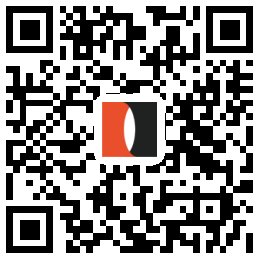The UMF (Unique Manuka Factor that is independently certified by the UMF Honey Association to ensure quality and authenticity) is a reference to the antibacterial quality of the honey, specifically the content of the medicinal trilogy leptosperin, dihdroxyacetone and methylglyoxl. The higher the rating, the better in terms of nutritional benefits. Manuka UMF 10+ is ideal for everyday consumption - a teaspoon a day eaten straight from the spoon, spread onto bread, stirred into smoothies and juices or incorporated into your beauty regime. Sweet but with a unique tang and a creamy texture, it’s not difficult to see why this is one of Tahi’s most popular honeys. Honey has been used as a natural remedy to heal wounds, clear skin, soothe sore throats, improve digestion, boost energy and promote health and wellness for thousands of years. Manuka honey takes this to the next level, which is why Marie Claire call it “the ultimate superfood”. Scientifically proven to contain antibacterial and antimicrobial properties, it contains over 200 active compounds not found in most honeys. Tahi produces its award-winning, natural and eco-friendly honey on a remote wetland sanctuary on New Zealand’s North Island. Its bees feed freely on the nectar of wild flowers, the honey then receives minimal treatment (no overheating, no pasteurising, nothing added) to retain its high pollen content – so highly prized for its health and beauty benefits. Tahi has planted thousands of trees, restored 30 hectares of wetlands, offset their carbon footprint and educated local communities. Their activities have seen the number of bird species on their land rise from 14 to 70. Its hives are in the wild and are not used for commercial pollination, meaning the bees are not constantly being moved around, they receive multiple food sources and are less exposed to pesticides and fungicides. And finally, where most honey producers replace the honey they take from the hive with a sugar solution that contains none of the nutrients that bees need to protect their immune system, Tahi leave their bees with enough of their own honey to ensure their healthy survival over the winter months.


约
Tahi | Manuka Honey UMF 10+ 250g
新人
注册送新人礼包
登录领取
商场 Harvey Nichols

戴安娜王妃喜爱的英国高端奢华百货
全场运费$5.97

Propolis Spray 30ml
$26.11

Manuka Honey UMF 5+ Squeezy Pouch 400g
$41.51

麦卢卡蜂蜜
$34.43

Pohutukawa Honey 250g
$35.90

Manuka Honey UMF 10+ 250g
$47.88

麦卢卡蜂蜜
$53.46

麦卢卡蜂蜜
$65.53

Kanuka Honey 250g
$29.91

Passionfruit Rum
$29.97

X Wales Bonner Country black leather sneakers
$190.88

KIDS Navy logo-print cotton T-shirt
$185.18

KIDS Black logo jersey sweatpants (6-12 years)
$90.47$226.18

KIDS Black stretch-cotton cargo trousers (10-12 years)
$113.34$226.67

Pink silk-blend chiffon dress (6-12 years)
$147.93$369.82

Black logo-print cotton tracksuit (4-6 years)
$176.48$441.18
Harvey Nichols官网详情
别样保障

- Tahi | Manuka Honey UMF 10+ 250g
- Tahi | Manuka Honey UMF 10+ 250g
- 价格
 扫码下单,领¥688大礼包~
扫码下单,领¥688大礼包~

Harvey Nichols
戴安娜王妃喜爱的英国高端奢华百货

Propolis Spray 30ml
Harvey Nichols
$26.11

Manuka Honey UMF 5+ Squeezy Pouch 400g
Harvey Nichols
$41.51

麦卢卡蜂蜜
Harvey Nichols
$34.43

Pohutukawa Honey 250g
Harvey Nichols
$35.90

Manuka Honey UMF 10+ 250g
Harvey Nichols
$47.88

麦卢卡蜂蜜
Harvey Nichols
$53.46

麦卢卡蜂蜜
Harvey Nichols
$65.53

Kanuka Honey 250g
Harvey Nichols
$29.91

Passionfruit Rum
Harvey Nichols
$29.97

X Wales Bonner Country black leather sneakers
Harvey Nichols
$190.88

KIDS Navy logo-print cotton T-shirt
Harvey Nichols
$185.18

KIDS Black logo jersey sweatpants (6-12 years)
Harvey Nichols
$90.47$226.18

KIDS Black stretch-cotton cargo trousers (10-12 years)
Harvey Nichols
$113.34$226.67

Pink silk-blend chiffon dress (6-12 years)
Harvey Nichols
$147.93$369.82

Black logo-print cotton tracksuit (4-6 years)
Harvey Nichols
$176.48$441.18
Tahi
Tahi

Manuka Honey UMF 15+ 250g
Tahi
$89.37

Manuka Honey UMF 20+ 250g
Tahi
$251.68

Pohutukawa Honey 250g
Tahi
$35.90

Manuka Honey UMF 10+ 250g
Tahi
$47.88

Premium Collection Manuka Honey Gift Pack 2 x 280g
Tahi
$77.24$154.59

Kanuka Honey 250g
Tahi
$29.91

Gabardine Tahis Trousers
Tahi
$295.63

Tahis Light Blue Shirt
Tahi
$368.31

Beelicious Honey Bee Honey 250g
Tahi
$9.46$18.97

Beelicious Honey Land Honey 250g
Tahi
$19.02

Tahis Dark Blue Shirt
Tahi
$368.31

Beelicious Honey Bird Honey 250g
Tahi
$9.46$18.97

扫码领688元新人大礼包

下载别样APP,领 688元 新人大礼包
别样海外总部:298 S Sunnyvale Ave, STE 210 Sunnyvale, CA 94086
别样中国总部:上海市浦东新区张江高科科苑路399号10号楼12层
Copyright © 2015-2021, 上海别样秀数据科技有限公司, 上海市浦东新区张江高科科苑路399号10号楼12层, 021-61514616, All rights reserved. 沪ICP备18004034号
